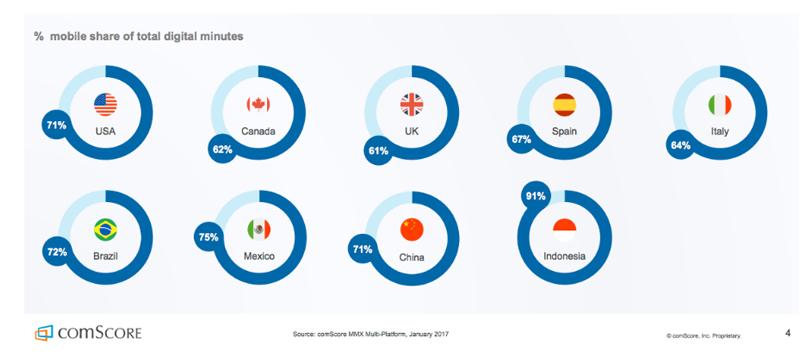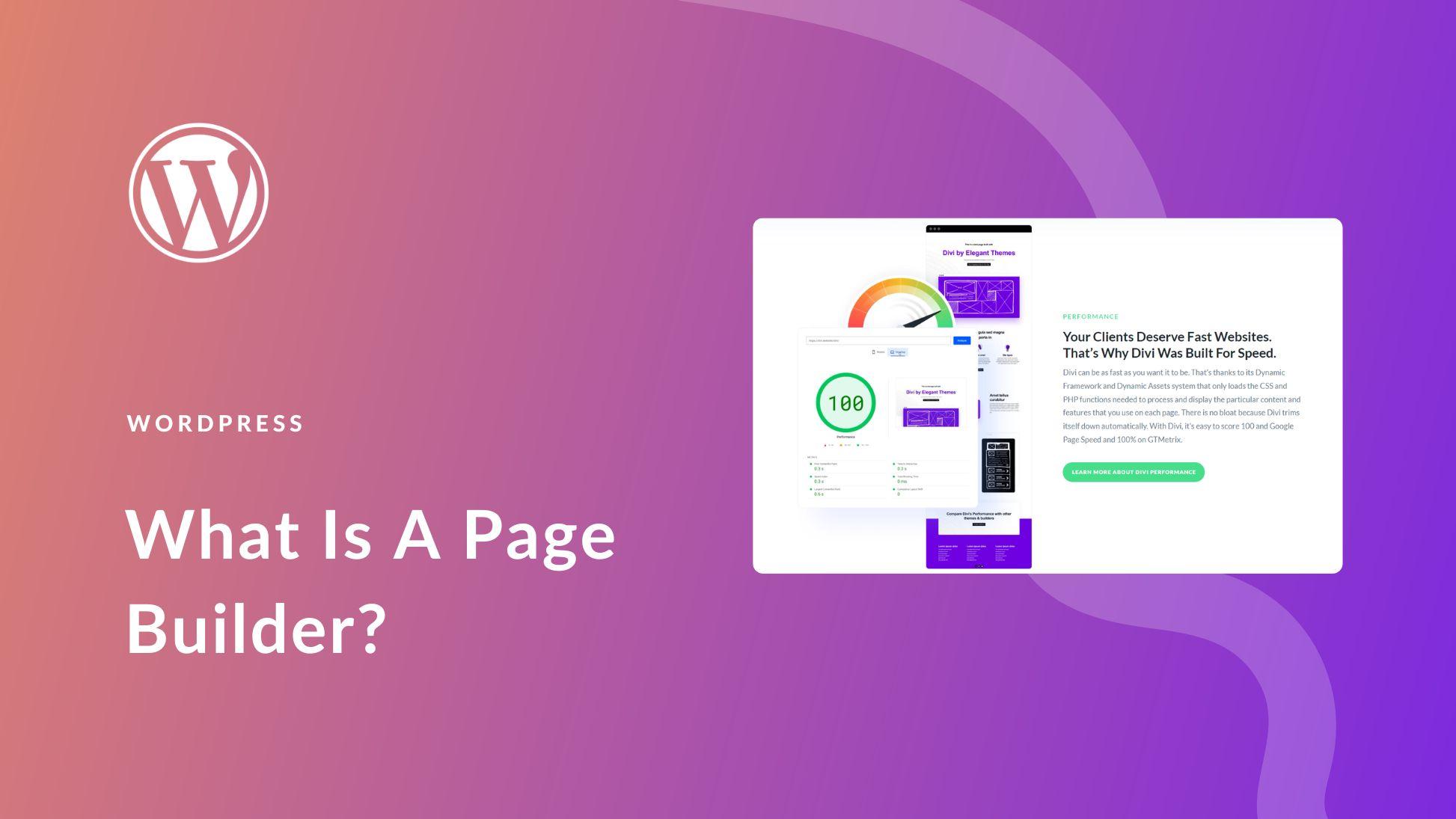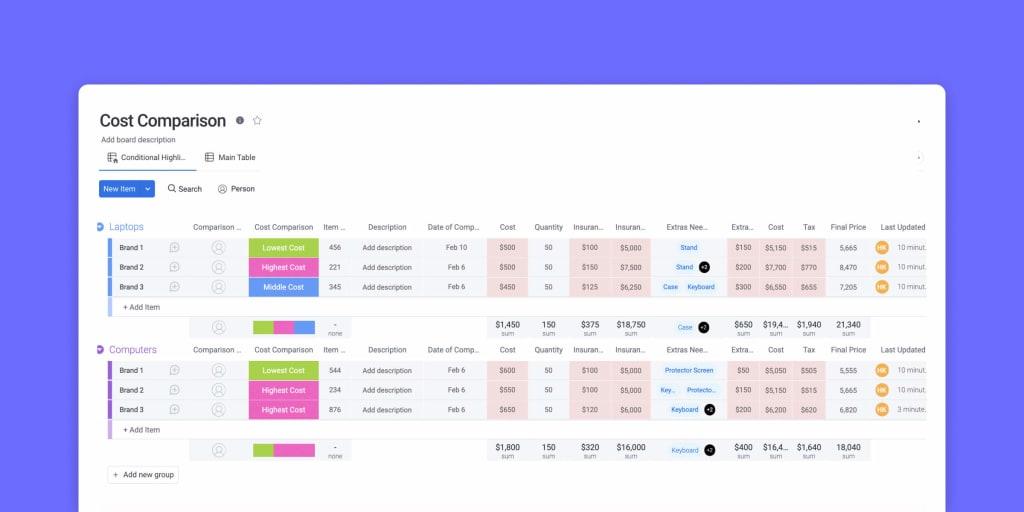Looking to revamp your website in 2024? Discover the 21 best WordPress page builders that make design a breeze! From intuitive drag-and-drop features to stunning templates, we’ll help you choose the perfect tool to elevate your online presence. Let’s dive in!
21 Best WordPress Page Builders for 2024 (Compared)
Are you ready to take your website to the next level in 2024? Whether you’re a seasoned developer or just dipping your toes into the world of web design, the right page builder can make all the difference. With the vast array of options available, choosing the perfect tool can feel overwhelming—but fear not! In this article, we’re diving deep into the 21 best WordPress page builders for 2024. We’ll compare their features, ease of use, and pricing, helping you find the ideal fit for your unique needs. Whether you’re looking to create stunning visuals without touching a line of code or seeking advanced functionality to expand your site’s capabilities, we’ve got you covered. So grab a coffee, settle in, and let’s explore the tools that can transform your vision into a reality!
The Rise of Page Builders: Why They Matter More Than Ever
In today’s digital landscape, the ability to create visually appealing and functional websites without extensive coding knowledge is not just a luxury—it’s a necessity. This is where page builders come into play, offering users intuitive interfaces to design their websites quickly and effectively. As we move into 2024, the significance of these tools continues to grow, making them essential for both new and seasoned web developers.
One of the primary reasons for the surge in popularity of page builders is their user-friendly nature. With drag-and-drop functionality, these tools allow anyone, regardless of technical expertise, to build stunning websites within hours. This democratization of web design empowers businesses, bloggers, and entrepreneurs to take control of their online presence. No longer do you need to hire a developer for every minor change; you can adjust layouts and styles in real-time.
Moreover, page builders often come with a plethora of pre-designed templates and elements that can enhance the aesthetic appeal of any website. Whether you’re looking to create a sleek portfolio, a dynamic e-commerce site, or a vibrant blog, these templates provide a strong foundation. Users can customize them easily to reflect their brand identity without starting from scratch, saving both time and effort.
As we navigate through various industries and niches, it’s clear that mobile responsiveness is no longer optional. Most modern page builders are designed with responsive design principles, ensuring that your site looks great on any device, whether it’s a smartphone or a desktop. This adaptability is crucial in an era where mobile traffic dominates, allowing businesses to reach a broader audience without compromising user experience.
Another vital aspect to consider is the SEO-friendly features offered by many page builders. As search engine algorithms evolve, having a website that is optimized for search visibility is paramount. Page builders often integrate easily with popular SEO plugins, allowing users to implement best practices without diving deep into technical details. This means better rankings and increased traffic for your website.
| Feature | Benefits |
|---|---|
| Drag-and-Drop Interface | Intuitive design process without coding. |
| Pre-Designed Templates | Quick start with customizable options. |
| Responsive Design | Consistent experience across all devices. |
| SEO Integration | Improved visibility on search engines. |
With the fast-paced evolution of web technologies, the rise of page builders is a response to the demand for more accessibility and flexibility in website creation. As these tools continue to advance, allowing for greater customization and innovation, they are becoming indispensable for anyone looking to establish a strong online presence in 2024 and beyond.

Unpacking the Features: What to Look for in a Page Builder
When diving into the world of page builders, it’s crucial to identify the features that will elevate your website design experience. A good page builder should not just be user-friendly but also packed with functionalities that cater to both novice and advanced users. Here are some key features to keep an eye out for:
- Drag-and-Drop Interface: The cornerstone of any great page builder, a drag-and-drop interface allows you to easily position elements on your page without needing to touch a line of code.
- Responsive Design Controls: Ensure your page builder enables you to create mobile-friendly layouts. Look for features that let you customize how your design appears on different devices.
- Pre-built Templates and Blocks: A library of templates and pre-designed blocks can save you time and inspire your creativity. Choose a builder that offers a variety of options tailored to your niche.
- Integration Capabilities: Seamless integration with popular plugins and tools (like SEO plugins, e-commerce solutions, and social media) will enhance your functionality without complicating your workflow.
Another essential aspect to consider is the customization options. You want a page builder that allows you to tweak every detail of your design. Look for:
- Advanced Styling Options: Features like typography settings, color pickers, and spacing controls will help you create a polished look that aligns with your brand.
- Custom CSS/JS Support: For users comfortable with code, the ability to add custom CSS or JavaScript can take your designs to the next level, offering greater flexibility and functionality.
Don’t overlook the importance of performance and speed. A sluggish page builder can lead to slow-loading websites, which can negatively impact user experience and SEO. Be sure to check:
| Page Builder | Speed Rating | Performance Optimization |
|---|---|---|
| Elementor | 8/10 | Caching & Minification |
| Beaver Builder | 9/10 | Lightweight & Fast |
| Divi | 7/10 | Image Optimization |
Lastly, consider the support and community surrounding the page builder. Comprehensive documentation, active forums, and customer support can make a significant difference when you’re navigating challenges or learning the software. A vibrant community can also foster inspiration and provide valuable insights from fellow users.
By focusing on these critical features when evaluating page builders, you can ensure you choose a tool that not only meets your current needs but also grows with you as your website evolves. Happy building!
User Experience: Which Builders Are Easiest for Beginners
When it comes to building your first website, the right WordPress page builder can make all the difference. Opting for a tool that’s not only intuitive but also packed with features can help you avoid the frustration that often accompanies the website creation process. Here’s a look at some of the most beginner-friendly page builders available in 2024.
1. Elementor
Elementor is a strong contender for beginners, thanks to its user-friendly interface and extensive library of templates. With its drag-and-drop functionality, you can easily customize layouts without needing any coding skills. Plus, the live editing feature allows you to see changes in real-time, making it easier to get your design just right.
2. Beaver Builder
Another popular choice is Beaver Builder. This tool is known for its simplicity and effectiveness. You can start with a blank page or choose from pre-built templates to kickstart your design. Its straightforward drag-and-drop editor ensures that even those with little to no technical background can create stunning pages quickly.
3. Gutenberg
With the introduction of the Gutenberg block editor, WordPress has made significant strides in simplifying the content creation process. For those who prefer a more native WordPress experience, Gutenberg offers a seamless way to build pages using various content blocks. While it might not have all the bells and whistles of dedicated page builders, its ease of use makes it a great starting point for newcomers.
4. SiteOrigin Page Builder
SiteOrigin Page Builder is another fantastic option for beginners, offering a no-frills experience with a focus on functionality. It features a grid-based layout system, which allows for easy alignment and organization of your content. Additionally, it integrates well with other WordPress plugins, giving you the flexibility to enhance your website as you grow.
| Page Builder | Key Features | Best For |
|---|---|---|
| Elementor | Drag-and-drop editor, live preview, template library | Visual designers, those wanting extensive customization |
| Beaver Builder | Easy-to-use interface, pre-built templates | Beginners looking for simplicity |
| Gutenberg | Block-based editing, native WordPress experience | Users who prefer a straightforward approach |
| SiteOrigin | Grid-based layout, responsive design | Content-focused creators |
Ultimately, the best page builder for you will depend on your specific needs and preferences. However, choosing any of the options mentioned above will set you on the right path toward creating a beautiful and functional website. Start with what feels most comfortable, and don’t hesitate to experiment with different builders until you find your perfect match!

Performance Matters: Speed and Optimization in Page Builders
When it comes to creating stunning websites using page builders, speed and optimization are paramount. A well-optimized site not only enhances user experience but also boosts SEO rankings. In 2024, the best page builders go beyond just aesthetics; they focus on delivering high performance. Here’s why speed matters and how top page builders tackle optimization.
Loading Time is critical. Studies show that users abandon sites that take more than three seconds to load. This makes it essential to choose a page builder that employs best practices for performance. Look for features like:
- Lazy loading of images and videos
- Minification of CSS and JavaScript
- Content Delivery Network (CDN) integration
Another aspect to consider is Mobile Responsiveness. With a significant portion of web traffic coming from mobile devices, a page builder must ensure that your website is not only visually appealing but also performs well across various screen sizes. The best builders automatically create responsive designs without compromising speed.
Caching is another key factor that can dramatically improve your website’s performance. Many page builders now include built-in caching mechanisms or easily integrate with popular caching plugins. This reduces server load and speeds up page delivery, providing a seamless experience for your visitors.
Here’s a quick comparison of how some popular page builders stack up in terms of performance and optimization features:
| Page Builder | Loading Time (Average) | Mobile Friendly | Built-in Caching |
|---|---|---|---|
| Elementor | 0.5 seconds | Yes | Yes |
| Beaver Builder | 0.7 seconds | Yes | No (integrates with caching plugins) |
| WPBakery | 0.9 seconds | Yes | Yes |
| Gutenberg | 0.4 seconds | Yes | Depends on theme |
By understanding the importance of speed and optimization in page builders, you can make an informed decision that not only meets your design needs but also supports your website’s growth. Choosing a builder that prioritizes performance will lead to happier visitors and, ultimately, a more successful online presence.

Design Flexibility: Customization Options That Stand Out
Integrations Galore: Connecting with Your Favorite Tools
Leveraging the power of integrations is crucial for any page builder aiming to enhance functionality and improve user experience. The best WordPress page builders of 2024 offer seamless connections with a variety of tools that can elevate your website’s potential. Let’s dive into some of the most notable integrations that can transform your workflow and expand your capabilities.
Many page builders now come equipped with robust eCommerce solutions, allowing you to integrate with major platforms like WooCommerce effortlessly. This means you can create stunning product pages without sacrificing speed or functionality. Here are some key eCommerce integrations to look for:
- Payment Processors: Compatible with Stripe, PayPal, and others to ensure smooth transactions.
- Shipping Solutions: Integrations with shipping providers like ShipStation and EasyShip for hassle-free logistics.
- Inventory Management: Sync with tools like TradeGecko to keep track of your stock levels.
Another exciting area is the integration of email marketing tools. A well-integrated page builder can help you capture leads and streamline communications. Popular email marketing integrations include:
- Mailchimp: Easily connect your forms to grow your subscriber list.
- ConvertKit: Perfect for bloggers looking to monetize their content through targeted campaigns.
- ActiveCampaign: Dive into advanced automation features to optimize your marketing efforts.
For those focusing on improving SEO and analytics, look for page builders that integrate with leading SEO tools and analytics platforms. Here’s a quick comparison:
| Page Builder | SEO Tool Integration | Analytics Integration |
|---|---|---|
| Elementor | Yoast SEO | Google Analytics |
| Beaver Builder | Rank Math | MonsterInsights |
| Divi | SEMrush | Heap Analytics |
consider the social media integrations that allow you to connect your website with various platforms for maximum reach. Many page builders now feature direct sharing options or advanced social feeds that can enhance user engagement. Some popular tools include:
- Instagram Feed: Showcase your latest posts directly on your site.
- Facebook Pixel: Track conversions and retarget users effectively.
- Social Share Buttons: Encourage sharing with easy-to-use sharing icons.
With these integrations, the right page builder not only simplifies your website creation process but also enhances its functionality, making it a powerful tool in your digital toolkit. Whether it’s eCommerce, email marketing, SEO, or social media, finding a page builder that connects seamlessly with your favorite tools can be a game-changer for your online presence.

Pricing Breakdown: Finding the Best Value for Your Budget
When it comes to choosing a WordPress page builder, understanding the pricing structure is essential for maximizing the value you receive for your investment. With various options available, each offering unique features and capabilities, it’s crucial to pinpoint the right fit for your needs without breaking the bank.
Many page builders operate on subscription models, which can range from monthly to annual payments. Here are some common pricing tiers you might encounter:
- Free Version: Most page builders offer a limited free version, ideal for beginners or those with simple requirements.
- Basic Plan: Typically starting at around $30-$50 per year, this usually includes essential features and support.
- Pro Plan: Ranging from $100 to $300 annually, this tier often unlocks advanced functionalities like premium templates, integrations, and priority support.
- Agency or Business Plan: Aimed at larger teams, these plans can go from $300 to $1,000+ per year, offering extensive features and multiple site licenses.
In evaluating these options, consider what you truly need. A free version can be a great starting point, especially if your website doesn’t require complex designs. However, if you’re looking to scale or need specific integrations, investing in a pro plan might save you time and money in the long run.
| Page Builder | Free Version | Basic Plan | Pro Plan |
|---|---|---|---|
| Elementor | Yes | $49/year | $199/year |
| Beaver Builder | Limited | $99/year | $399/year |
| Divi Builder | Yes | $89/year | $249/one-time |
| WPBakery | No | $64/one-time | Not available |
Don’t forget to factor in potential additional costs, such as premium templates or add-ons, which can enhance your site’s design and functionality. While these extras can increase your overall expenditure, they may also significantly improve your site’s performance and user experience.
Ultimately, the key to finding the best value is to align your budget with your specific needs. Take advantage of trial periods when available, as they allow you to test the waters before fully committing. By doing your homework and comparing features across different page builders, you can ensure that your investment pays off in the long run.

Our Top Picks: The Best Page Builders for Every Type of Website
When it comes to crafting stunning websites, having the right tools is essential. Here’s a curated list of page builders that cater to various needs, ensuring that whether you’re a blogger, a business owner, or an e-commerce entrepreneur, there’s a perfect fit for you.
For Beginners: Elementor
Elementor is a go-to choice for those just starting out. Its intuitive drag-and-drop interface allows users to create beautiful pages without any coding knowledge. With a vast library of templates and widgets, you can easily customize your site to reflect your brand.
For E-commerce: WooCommerce Builder
If you’re venturing into online sales, the WooCommerce Builder is your best ally. Seamlessly integrated with WordPress, it provides an array of features to set up your store:
- Product Listings: Create engaging product pages.
- Checkout Customization: Optimize user experience.
- Sales Analytics: Track your performance efficiently.
For Creative Professionals: Beaver Builder
Beaver Builder shines for creatives needing flexibility and design control. Enjoy a front-end editing experience where you can see changes in real-time. Plus, its compatibility with various themes ensures you maintain your unique style.
For Advanced Users: Oxygen Builder
For developers and those who want complete control, Oxygen Builder offers a robust solution. This builder allows for extensive customization, letting you create complex layouts and dynamic content without compromising speed or performance.
Comparison Table
| Page Builder | Best For | Ease of Use | Pricing |
|---|---|---|---|
| Elementor | Beginners | Very Easy | Free & Premium Plans |
| WooCommerce Builder | E-commerce | Moderate | Free with WooCommerce |
| Beaver Builder | Creatives | Easy | Starts at $99 |
| Oxygen Builder | Advanced Users | Complex | $99 One-Time Fee |
These page builders not only simplify the process of designing your website but also empower you to bring your vision to life. Choose the one that aligns with your needs and watch your website transform into a stunning online presence!

Real User Feedback: Insights from Those Who Use These Builders
User Experiences with Popular WordPress Page Builders
When it comes to selecting a page builder, user feedback can be a goldmine of insights. Here’s what actual users are saying about their experiences with some of the top contenders for 2024:
Divi
Visual Editing: A common highlight among users is Divi’s real-time visual editing. “Seeing changes happen right before my eyes made the whole process enjoyable,” a small business owner noted.
Performance: However, some users have voiced concerns about site speed. One user complained, “While I love the design capabilities, my site became sluggish after adding too many Divi modules.”
Beaver Builder
User-Friendly Interface: Users report that Beaver Builder is one of the most straightforward page builders available. “I was able to teach my staff how to use it in less than an hour,” stated a marketing manager.
Support and Community: The positive community feedback has been a strong point, with many praising the responsive support team. “Whenever I run into issues, I get help quickly, which keeps my projects on track,” said an entrepreneur.
Overall Impressions
Users generally agree that while each builder has its strengths, the choice often depends on individual needs and technical know-how:
| Page Builder | Strength | Common Concern |
|---|---|---|
| Elementor | Flexibility | Overwhelming for beginners |
| Divi | Visual Editing | Site speed issues |
| Beaver Builder | User-Friendly | Fewer design options |
Real user feedback suggests that experimenting with demos or trial versions can significantly help in making the right choice. Listening to the experiences of others can guide potential users through the decision-making process, ensuring they select the builder that best fits their needs and skill level.

Final Thoughts: Choosing the Right Page Builder for Your Needs
Choosing the right page builder is a pivotal decision that can influence not just the look and feel of your website, but also how effectively it meets your unique needs. With a plethora of options available in 2024, it’s essential to weigh the features, usability, and overall compatibility of each builder with your specific requirements.
Start by identifying what you value most in a page builder. Are you looking for advanced design capabilities, or do you prefer a straightforward drag-and-drop interface? Consider the following factors:
- User Experience: How intuitive is the interface? A steep learning curve can be frustrating and time-consuming.
- Customization Options: Does the builder allow for extensive customization, or are you limited to templates?
- Integration with Plugins: Ensure that the page builder integrates seamlessly with essential plugins you plan to use.
- Performance: Will using the page builder impact your site’s loading speed? Fast and optimized code is crucial for SEO.
- Customer Support: Check if reliable support options are available to help you troubleshoot any issues that may arise.
Another critical aspect is the pricing structure. Many builders offer different tiers of service, which can vary significantly in terms of features and support. It’s wise to assess your budget and see how it fits with the offerings of each page builder. Here’s a quick comparison table of some popular options:
| Page Builder | Starting Price | Free Version | Key Features |
|---|---|---|---|
| Elementor | $49/year | Yes | Drag-and-drop, responsive design, extensive template library |
| Beaver Builder | $99/year | No | User-friendly interface, front-end editor, multi-site support |
| WPBakery | $45/year | No | Backend and frontend editor, wide range of add-ons |
| Gutenberg | Free | Yes | Block editor, easy content creation, native WordPress integration |
don’t forget to take advantage of trial periods. Many page builders offer free trials or demo versions, allowing you to test the waters before committing. This hands-on experience can be invaluable, as it helps you to understand if a builder aligns with your workflow and design goals. Remember, the right page builder should empower you to create effortlessly stunning pages, without compromising functionality or performance.
Frequently Asked Questions (FAQ)
Q: What’s the purpose of this article?
A: This article is designed to help you navigate the crowded world of WordPress page builders by showcasing the 21 best options for 2024. Whether you’re a beginner or a seasoned pro, we’re here to help you find the perfect tool to create stunning websites effortlessly.
Q: Why should I consider using a page builder for my WordPress site?
A: Page builders simplify the web design process by allowing you to create beautiful layouts without needing to code. They offer user-friendly drag-and-drop interfaces, making it easy to customize your site to fit your vision. Plus, they come with pre-built templates and elements, speeding up your workflow!
Q: What features should I look for in a WordPress page builder?
A: Great question! Look for features like a user-friendly interface, responsiveness, extensive template libraries, integration with popular plugins, and customization options. Additionally, consider performance, customer support, and whether it provides a live preview of your changes.
Q: Are all page builders created equal?
A: Not by a long shot! Each page builder has its strengths and weaknesses. Some might be perfect for beginners with their intuitive interfaces, while others might cater to advanced users who need more customization options. That’s why comparing them is crucial to find the right fit for your needs!
Q: Which page builder is the best for beginners?
A: If you’re just getting started, we recommend looking at options like Elementor and Beaver Builder. They both have user-friendly interfaces and plenty of tutorials to help you grasp the basics quickly. Plus, they offer a lot of great features without overwhelming you.
Q: What about advanced users? Are there options that cater to them?
A: Absolutely! For advanced users, tools like Divi and WPBakery offer more complex design capabilities and extensive customization options. These builders allow you to craft unique designs and layouts that truly stand out, making them perfect for those who want more control over their website.
Q: Will using a page builder affect my site’s performance?
A: It can. Some page builders might introduce extra weight to your site, which could impact loading times. However, many of the top builders on our list are optimized for performance. Always choose a builder that emphasizes speed and efficiency to keep your website running smoothly.
Q: Are page builders compatible with all WordPress themes?
A: Most modern page builders are designed to work with a wide range of WordPress themes. However, it’s always a good idea to check for compatibility before committing. Some builders even have their own themes that are optimized to work seamlessly with them.
Q: Can I switch page builders later?
A: Yes, you can, but it’s important to proceed with caution. Switching builders might cause some layout issues or require reformatting your pages. It’s generally a good practice to back up your site before making any major changes to ensure you can easily revert if needed.
Q: How do I get started with a page builder?
A: Getting started is easy! Choose a page builder from our list that fits your needs, install it through your WordPress dashboard, and start playing around with the features. Many builders have extensive documentation and tutorials to help you along the way. Dive in and start creating!
Q: What’s the final takeaway from this article?
A: The right WordPress page builder can transform your website-building experience. With our list of the 21 best options for 2024, you’ll be well-equipped to choose a tool that suits your style and needs. So, roll up your sleeves and get ready to create something amazing!
The Conclusion
And there you have it—the 21 best WordPress page builders for 2024, each with its unique features and benefits designed to make your website-building journey a breeze. Whether you’re a seasoned developer or just starting out, there’s a perfect option here for you.
Remember, the right page builder can make all the difference in creating a stunning, user-friendly website that resonates with your audience. So, weigh your options, consider your specific needs, and don’t hesitate to try out a few different builders to see which one clicks for you.
As you embark on your website creation adventure, keep in mind that the goal is not just to build a site but to create an experience that engages and delights your visitors. So go ahead, choose a page builder that aligns with your vision, and start bringing your ideas to life!
If you found this article helpful, share it with fellow creators and entrepreneurs. And as always, feel free to drop your thoughts or questions in the comments below—I’d love to hear your experiences with these tools! Happy building!







Elementor
Flexibility and Ease of Use: Many users rave about Elementor’s intuitive drag-and-drop interface. One user mentioned, “I built my entire site in just a weekend, and I had zero coding experience!”
Customization Options: Users appreciate the vast array of templates and widgets, allowing for a high degree of customization. “I love how I can make my site unique without needing a web developer,” shared a blog owner.